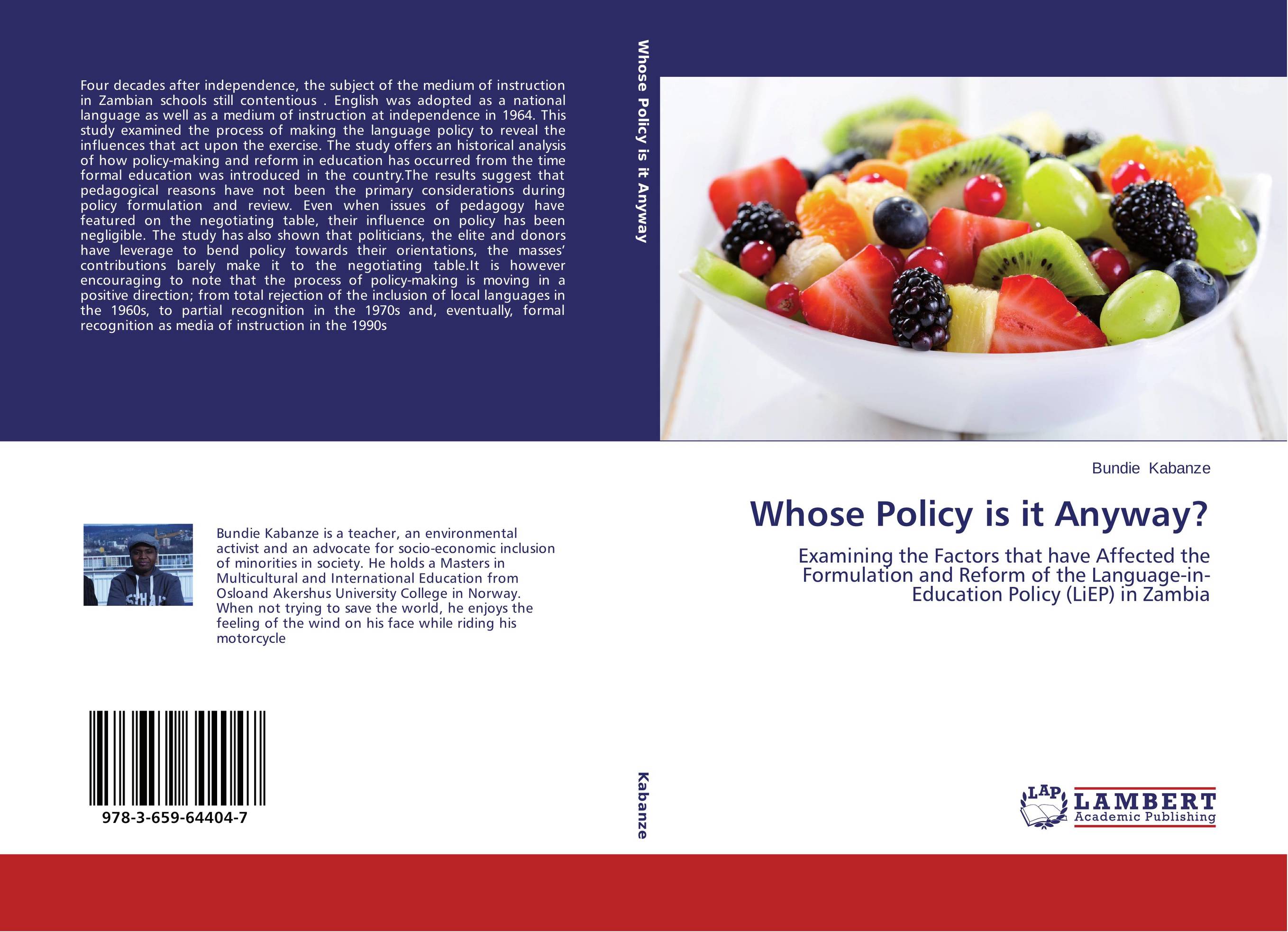| Поиск по каталогу |
|
(строгое соответствие)
|
- Профессиональная
- Научно-популярная
- Художественная
- Публицистика
- Детская
- Искусство
- Хобби, семья, дом
- Спорт
- Путеводители
- Блокноты, тетради, открытки
Whose Policy is it Anyway?. Examining the Factors that have Affected the Formulation and Reform of the Language-in-Education Policy (LiEP) in Zambia

В наличии
| Местонахождение: Алматы | Состояние экземпляра: новый |

Бумажная
версия
версия
Автор: Bundie Kabanze
ISBN: 9783659644047
Год издания: 2014
Формат книги: 60×90/16 (145×215 мм)
Количество страниц: 132
Издательство: LAP LAMBERT Academic Publishing
Цена: 36414 тг
Положить в корзину
| Способы доставки в город Алматы * комплектация (срок до отгрузки) не более 2 рабочих дней |
| Самовывоз из города Алматы (пункты самовывоза партнёра CDEK) |
| Курьерская доставка CDEK из города Москва |
| Доставка Почтой России из города Москва |
Аннотация: Four decades after independence, the subject of the medium of instruction in Zambian schools still contentious . English was adopted as a national language as well as a medium of instruction at independence in 1964. This study examined the process of making the language policy to reveal the influences that act upon the exercise. The study offers an historical analysis of how policy-making and reform in education has occurred from the time formal education was introduced in the country.The results suggest that pedagogical reasons have not been the primary considerations during policy formulation and review. Even when issues of pedagogy have featured on the negotiating table, their influence on policy has been negligible. The study has also shown that politicians, the elite and donors have leverage to bend policy towards their orientations, the masses’ contributions barely make it to the negotiating table.It is however encouraging to note that the process of policy-making is moving in a positive direction; from total rejection of the inclusion of local languages in the 1960s, to partial recognition in the 1970s and, eventually, formal recognition as media of instruction in the 1990s
Ключевые слова: Language, reform, policy, Zambia, education



